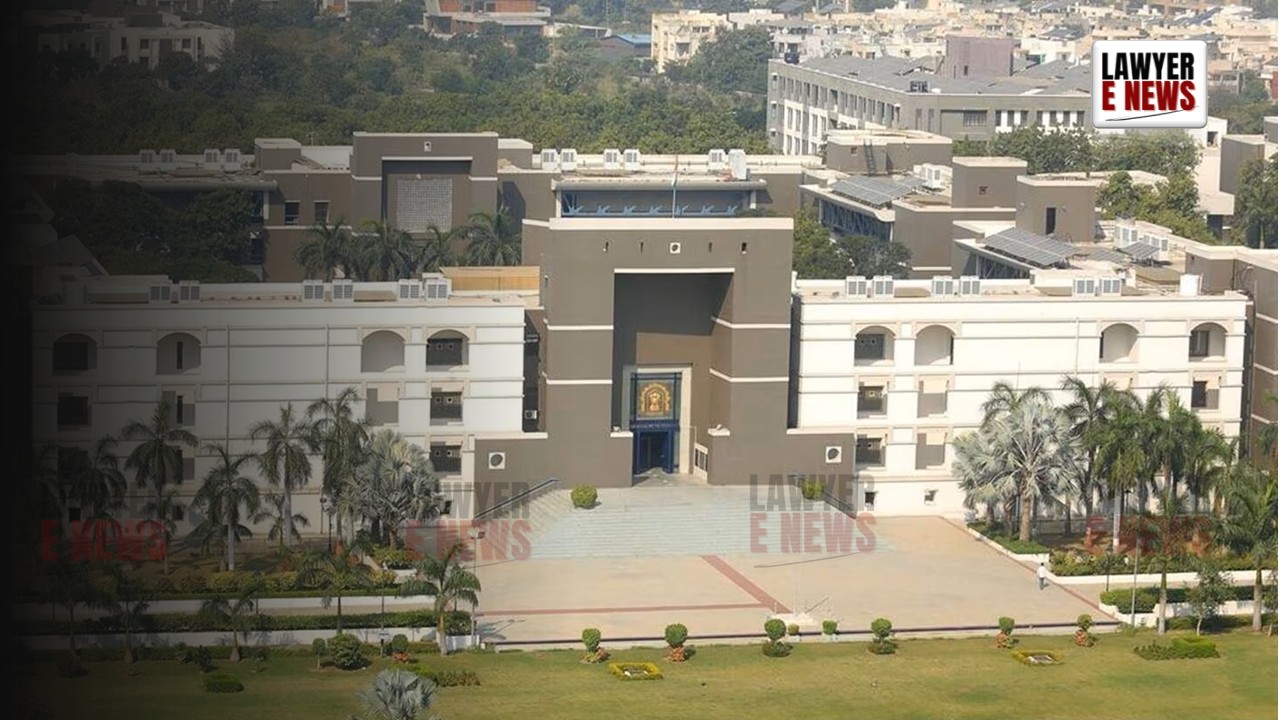-
by Admin
16 February 2026 4:21 AM



Gujarat High Court reaffirmed a critical legal principle that non-payment of full consideration alone does not render a registered sale deed void. Justice Sanjeev J. Thaker, while dismissing the second appeal, observed that a registered sale deed acknowledging receipt of consideration creates a legal presumption of valid execution, and such a presumption cannot be rebutted through oral evidence under Section 92 of the Indian Evidence Act, 1872.
The court emphasized that even if the entire sale consideration was not paid, the sale would still be valid under Section 54 of the Transfer of Property Act, 1882, as long as the sale deed was executed and registered. The plaintiff, who had sought cancellation of the sale deed, was advised that his remedy lay in recovering the unpaid amount rather than seeking to invalidate a legally executed and registered document.
The dispute arose when the plaintiff, Harish Purshottam Chandwani, filed Special Civil Suit No. 70 of 2017, seeking cancellation of a registered sale deed, a declaration that the defendant had no right over the property, and a permanent injunction against further transactions. The plaintiff alleged that despite executing an agreement to sell on December 12, 2012, for 51 plots in Maduli Park for ₹2,13,97,865/-, the defendant had failed to pay the full consideration.
The plaintiff claimed that the defendant issued five cheques totaling ₹1.5 crore, but they were dishonored for insufficient funds. Despite this, the plaintiff executed and registered the sale deed in favor of the defendant. When the defendant allegedly refused to clear the dues, the plaintiff approached the court, alleging fraud and misrepresentation.
The Trial Court dismissed the suit on October 6, 2021, and the Principal District Judge, Bhuj, upheld this decision on August 23, 2024, in Regular Civil Appeal No. 145 of 2022. Challenging these concurrent findings, the plaintiff filed a Second Appeal before the Gujarat High Court.
“Once a Sale Deed is Registered, Oral Evidence Cannot Contradict It” – Court on Section 92 of the Evidence Act
The plaintiff’s primary argument was that since the sale consideration was not fully paid, the sale deed should be declared null and void. He sought to introduce oral evidence to establish that the defendant had failed to make the agreed payments, thereby committing fraud.
Rejecting this argument, the Gujarat High Court categorically held: “Once a written contract is executed, no oral evidence can be admitted to contradict, vary, add to, or subtract from its terms. Section 92 of the Indian Evidence Act, 1872, bars such an attempt.”
The court emphasized that since the sale deed explicitly acknowledged receipt of consideration, it carried a presumption of valid execution, which could not be challenged through oral assertions. The plaintiff was bound by his own admission in the registered document.
Sale is Complete Even if Consideration is Paid or Promised – Court on Section 54 of the Transfer of Property Act
The court addressed whether non-payment of consideration could render a sale deed void. Referring to Section 54 of the Transfer of Property Act, 1882, the court clarified:
“A sale is a transfer of ownership in exchange for a price paid or promised or part-paid and part-promised. The law does not require that full payment must be made at the time of execution for a sale to be valid.”
The court ruled that once ownership is transferred through a duly executed and registered sale deed, non-payment of consideration does not invalidate the transfer of title. The plaintiff’s remedy was to seek recovery of the balance amount through civil proceedings, but the sale deed itself could not be canceled.
Presumption of Valid Execution and Limited Scope of Second Appeal
The Gujarat High Court underscored that a registered sale deed carries a strong presumption of valid execution. The burden of proving otherwise lay on the plaintiff, who had failed to produce any cogent evidence to rebut this presumption.
Justice Thaker further emphasized the limited scope of a second appeal, citing Navaneethammal v. Arjuna Chetty, (1996) 6 SCC 177: “The High Court cannot interfere with the concurrent findings of fact unless they are perverse or contrary to legal principles.”
The court also relied on Jaichand (Dead) through LRs v. Sahnulal, 2024 SCC OnLine SC 3864, reiterating: “Under Section 100 CPC, a second appeal can only be entertained if there is a substantial question of law. Mere dissatisfaction with factual findings does not warrant interference.”
The Gujarat High Court dismissed the second appeal, reaffirming that a registered sale deed cannot be invalidated merely because the full sale consideration was not paid. The court made it clear that: “A duly executed and registered sale deed carries a presumption of valid execution. If there is a dispute regarding consideration, the remedy lies in recovery, not in cancellation.”
Further, it emphasized that: “Oral evidence contradicting the terms of a written and registered contract is inadmissible under Section 92 of the Indian Evidence Act.”
As a result, the plaintiff’s attempt to cancel the sale deed failed, as he had no legal basis for his claim. The only recourse available was to seek recovery of any unpaid dues through appropriate legal action.
Date of Decision: February 5, 2025
